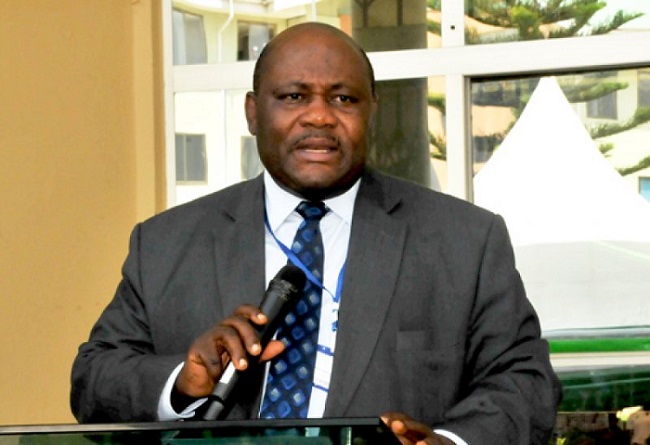While the state struggles to deal with issues of remuneration for public sector workers among other pressing workers’ needs, it has come to the fore that some officers are gleefully drawing double salaries from the Consolidated Fund.
One such officer is the Vice-Chancellor of Accra Technical University (ATU), Professor Samuel Nii Odai, who has admitted to drawing salaries from two state institutions.
Professor Nii Odai’s admission follows a written media inquest from Adom News investigative team that sought to know if he received salaries for his current job as VC of ATU even as he draws same from the Kwame Nkrumah University of Science and Technology (KNUST).
Responding to the inquest, Prof Nii Odai confirmed receiving salaries from the two institutions but justified his action, saying the practice was “a general condition and not an exception”.
“By virtue of provisions and conditions guiding the taking of sabbatical leave by academics from all the universities in Ghana, our Vice-Chancellor is entitled to the payment of a basic salary from his parent University (KNUST).
“Being currently engaged at ATU, he receives salary and other allowances as enumerated in his contract of employment,” the VC said in a letter written on his behalf by his secretary, Sabrina Kafui Tsagli.
He also said in his response that the situation was replete in other public universities.
“There are several academics currently working as public servants in various agencies and institutions who are either benefitting or have benefited from sabbatical leave with its associated benefits,” the letter claimed.
Professor Nii Odai’s response has raised issues of ongoing breaches at some of Ghana’s public universities as Ghana’s laws prohibit the drawing of double salaries from the Consolidated Fund.
What is a sabbatical leave?
Sabbatical leave is a paid leave granted to senior members in academia.
Such leaves are granted to academics to allow them to spend time in another institution, preferably within higher education.
Sabbatical leaves serve as rest or professional development periods for those who are entitled to same.
How does one qualify?
After serving for six consecutive years with satisfactory performance, the leave is taken in the 7th year (sabbath).
It is applied for by the staff and may be granted by Management, depending on the staffing need of the staff’s department or school and the financial position of the institution at the time of application.
Where a senior member doesn’t go on sabbatical in the 7th year, the individual is entitled to 2 years after serving for 10-12 years, depending on the conditions of service of senior members in a particular university.
Normally, an application for sabbatical leave is supported by a proposal indicating what the applicant will do during the period, the institution where the leave will be spent and a letter of acceptance from the receiving institution.
The process from application to approval of leave should be completed ahead of the intended start date.
It is preferred that the leave starts at the commencement of the academic year if the applicant is an academic to minimize any disruption in the academic activities.
Ghana’s laws on double salary
Ghana’s laws frown upon the drawing of double salaries from the Consolidated Fund.
Under section 124 (1) of the Criminal and other Offences Act 1960 (Act 29) as amended in 2012 (Act 849), a section that relates to the offence of stealing, it is an offence for a public officer to draw a double salary from the Consolidated Fund.
An academic who spoke to this site on condition of anonymity said one could take sabbatical leave from one institution of higher learning to the other within the same jurisdiction but added that it was wrong for such persons to draw salaries from both institutions.
“No, you can’t take salary from both [institutions]. It will amount to drawing a double salary from the government as both are public institutions. If one university is paying your salary then you can take honorarium for the other for your services,” he said in response to whether the practice was legal.
He has also admitted that many academics were engaged in the practice.

